Interview: Alejandro Escovedo From Nuns To Pistols
Alejandro Escovedo has been in the rock & roll game a long time. His first band, The Nuns, helped define the LA punk scene of the late 70s along with groups like The Germs and The Plugz.
Later, he joined Rank & File and helped usher in the cowpunk sound of the 1980s. From there he has gone on to nurture an acclaimed solo career, one that now boasts The Crossing, his politically-charged new album featuring the likes of Wayne Kramer (MC5), James Williamson (Stooges), The Only Ones and Joe Ely.
After 40 years in the rock & roll game, Alejandro Escovedo is finally bringing his unique brand of music to New Zealand with a show at Auckland’s Tuning Fork On Friday, March 15th, followed by shows in Wellington and Christchurch the following evenings.
The 13th Floor’s Marty Duda spoke to Alejandro Escovedo as he and his band were on the road in the US, trying to survive one of the Midwest’s coldest blizzards. Listen in as they talk about Alejandro’s rich legacy, including the time he opened for The Sex Pistols‘ very last show.
Or, read a transcription of the interview here:
AE: I’m in Indianapolis, Indiana.
MD: I thought so, you’re on the road, right?
AE: We’re on the other side of the world, yeah.
MD: How are things in the great Midwest?
AE: Well, it’s rainy and cold tonight, but we just experienced something called “the polar vortex”. When we hit Chicago it was 53 below zero Fahrenheit, so quite frigid! It was colder in Chicago than it was in Antarctica that day so, it was kind of crazy.
MD: It’s gotta make travelling around miserable.
AE: Yeah, I know, we stayed inside.
MD: Well, it’s summertime here so you’re on your way to the right part of the world at least.
AE: Wonderful…look forward to it.
MD: So, you haven’t been down this way before, have you?
AE: No sir, I’ve never been there. This will be my first visit and I really look forward to it.
MD: So do you do anything different when you prepare to go to a new territory that you haven’t visited before?
AE: Well I think that because my records haven’t necessarily been released there, or pushed there, and I’ve never toured there, I tend to think of the show as kind of a retrospective in a way so that I can introduce people to some of my older songs and talk about where it was I began and I am now. it’ll be a chance to tell people who it is I am.
MD: Are you travelling with your band, Don Antonio?
AE: No, I’m not. I’m coming solo. These New Zealand shows will be solo.
MD: Ahh, ok.
AE: So, in that case there’s a lot of storytelling and just kind of intimate song delivery, you know, just kind of singing the songs in a very simple way.
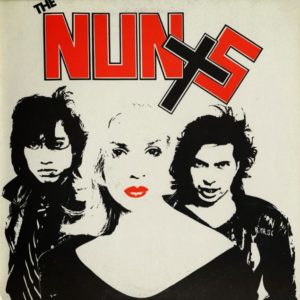 MD: Excellent, that sounds good. I’ve been following your career for a long time, since way back…Rank & File and before that…I think I have a Nuns 45 somewhere around so it’ll be great to finally see you. And I think, if I’m not mistaken, Ian Hunter is a big fan of yours, or visa versa, and I’ve always been a big Mott The Hoople fan. So it all seems to, in some strange way, fit together here.
MD: Excellent, that sounds good. I’ve been following your career for a long time, since way back…Rank & File and before that…I think I have a Nuns 45 somewhere around so it’ll be great to finally see you. And I think, if I’m not mistaken, Ian Hunter is a big fan of yours, or visa versa, and I’ve always been a big Mott The Hoople fan. So it all seems to, in some strange way, fit together here.
AE: You and I both, you know and I’ve been doing Mott The Hoople songs since when I first started learning to play guitar and Ian became a supporter of mine when I was ill and its always kind of jumped in and out of my life. He’s always been there and a great inspiration to me. I love Mott, I used to see them all the time. I’m sad that I won’t be around to see them when they’re touring again, but I’ve already seen them. I saw them in the 70s so I’m quite happy with what I experienced.
MD: I actually went to London to see their reunion shows in 2009. They did five shows at the Hammersmith.
AE: Oh, you did?
MD: Yeah, It was amazing, it was fantastic. And I did see them in the 70s as well, so I was happy to catch them at both ends of their career, it was cool.
So, when you were listening to Mott The Hoople in the 70s, you must have been pretty much a kid living in Los Angeles, or wherever you were, or Texas, how did that form what first ended up being the punk stuff and then the cowpunk thing and all that stuff that ended up following you around after that?
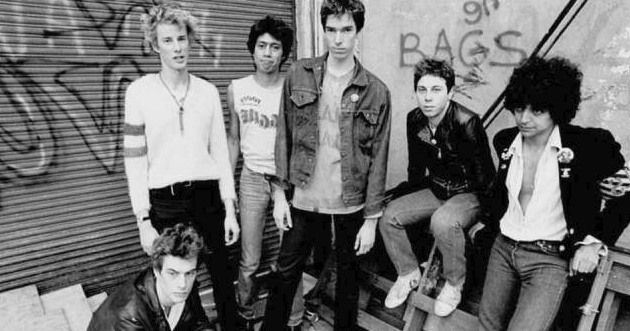
AE: Well, the thing was is that when I first started playing with The Nuns, all I did was play guitar and write. I just knew a couple chords and just started making a lot of noise. And then when I got with Rank & File, they were great songwriters, Tony and Chip, so I learned lots from them about songwriting.
And then when I started making my own music in ’91, ’92, after I left Rank & File, and my first record came out, I started to write more in the style of someone like Ian Hunter and especially the songwriters that were around me in Austin, you know, Joe Ely and Townes Van Zandt, Guy Clark and all those guys. I really kinda took that in and blended it with like the Mott style, you know, kind of rock & roll. So storytelling was always an important part of the songwriting aspect of it.because I was a very limited musician in a sense that it was really about trying to create this soundtrack to these words that told a story. In a way we were still trying to make movies with music.
MD: And I see now you’re being presented with an award at the Austin Music Awards for your songwriting…the Townes Van Zandt Awards on February 27th. Is that something you’re looking forward to?
AE: It certainly is, it’s a great honour, one that I don’t take lightly. I mean, Townes, to me, was a master and I was so influenced by him and just loved him so much as a person so I hope he would approve of this.
MD: I’m sure he would.
AE: He was a great guy to tour with and hang out with. I liked him alot.
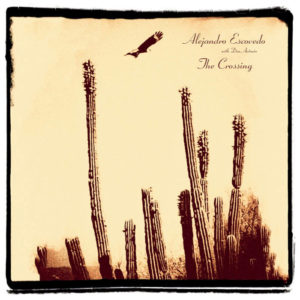 MD: You talk about storytelling, you’re certainly doing that on The Crossing, on your latest album, is that kind a culmination of what you’ve been doing over the years…to be able to do something like this on this record?
MD: You talk about storytelling, you’re certainly doing that on The Crossing, on your latest album, is that kind a culmination of what you’ve been doing over the years…to be able to do something like this on this record?
AE: I think so. I think that this record kind of represents everything I’ve ever wanted to do musically and lyrically because not only are we telling a complete story…its like a movie…but the music plays a large part of it, obviously. And the way that we structured the music is a perfect soundtrack to the words, so, yeah, I would have to say that this record, more than any other record I’ve ever made is really like a culmination of everything I’ve ever wanted to do.
MD: Obviously it deals with the issue of immigrants and and the immigrant experience and its a very hot button topic in the United States at the moment, what has been the reaction to it in the States…especially in places like Indiana which sometimes aren’t the most enlightened audiences?
AE: You know, it’s gotten a really great, really great, really great response. In the press, we’ve gotten a great response, when we play the record live, we’ve gotten a wonderful response. I was telling someone that we’ve had some walkouts sometimes when, if I mention the current administration people get a little, you know, uneasy. Some don’t appreciate what I have to say about it, but that’s part of the freedom that people have, to voice their opinions, you know, and accept them or not, so I’m not going to stop saying the things I’m saying because of the response we get from time to time but, at the same time, when the record first came out it was weird, like on Facebook, when the first reviews came out and the first single, we actually got some, you know, “You should go back to Mexico”, kind of thing. This is a great example of the ignorance because I was born in San Antonio, Texas, my father’s from Mexico and Texas really WAS Mexico, so, if anyone’s telling me to get out, I should be telling them. It’s ridiculous in a way.
MD: Has the attitude changed in the last couple of years because of the Trump administration? Have you noticed an attitude shift is all of this issue?
AE: You know, it’s funny because when we first…we toured right after when he was elected and we toured right through Ohio, Indiana, we were going up North, we went right through the middle of the country, and my wife and I suddenly realized that there was a different kind of vibe in the air. She’s blonde and I’m Mexican and we suddenly realized that we had to be a little more aware of where we were…just this strange kind of awareness that we hadn’t had to be as cautious previously. Now we had to be a little more discerning in where we went and the kind of things that we talked about in public. It was a little different. I think that it’s changing now because people understand that he’s fabricating most of this and trying to create fear and division in the country, so that a lot of people are becoming aware of it, they’re finally understanding that he’s a pathological liar. I think it’s changing and we’re getting a lot of support with the message that we’re giving.
MD: Excellent! Well, that’s good news. And you must have had fun making the record, I mean you get to play with Wayne Kramer and James Williamson!
AE: (laughs) That was incredible, man. And you know what was really beautiful is that on January 5th, when we began this tour, we did a performance in Austin and they all came and played…James Williamson, Wayne Kramer, John Perry of The Only Ones, Joe Ely was there and Johnny Moeller, who is a great Austin guitar player who plays with The Fabulous T-Birds.
MD: The one who seems to be the odd one out is having guys from The Only Ones who were a great band, but I wouldn’t have picked them as one of the ones that you would collaborate with on this. What brought that on?
AE: I think it’s just that we were looking for people who might be interesting and could lend something. And it’s funny because the working title for the song that they sing on was The Only Ones. It kind of fit it at first. And then suddenly we thought, “If they’re gonna sing on anything, this would be a good one”. And I think Peter (Perrett) did a beautiful job on vocals and John’s a great guitar player, so it was really fun.
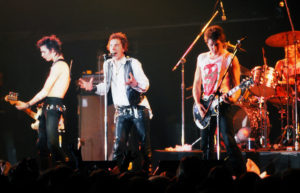 MD: And I would be remiss in asking you about the fact…I know that you were with The Nuns when you guys opened for The (Sex) Pistols on their last show in San Francisco. What can you tell me about that? It must have been fairly outrageous I Would imagine.
MD: And I would be remiss in asking you about the fact…I know that you were with The Nuns when you guys opened for The (Sex) Pistols on their last show in San Francisco. What can you tell me about that? It must have been fairly outrageous I Would imagine.
AE: It was theatre of the absurd. It suddenly dawned on me that rock and roll was something other than buying records and believing in these records and believing in these bands. It was like suddenly we saw the man behind the curtain. I was quite disillusioned for a bit, in rock and roll. I never expected it to be a scam. You know, The Pistols, I love all those singles that they made and the record and I was really looking forward to a great show and they were in shambles. (Paul) Cook and (Steve) Jones were pretty much just acting like your typical rock stars that were hanging out with Peter Frampton’s wife and stuff. It was kind of a circus, really. But maybe that was necessary, you know, the same way as, as scary as Trump is, maybe it was necessary to wake everybody up and see the reality of something.
MD: How do you feel about rock and roll now?
AE: I love it, I love it. The romance never ended, really. There was a separation there for a while, especially around that time, but only because I saw the business side of it. I saw, what would you call it, the street-barker, midway kind of version of it. It was almost like a boy band gone awry or something.
MD: Are you living in Dallas now, is that right?
AE: Yeah, we live in Dallas. How long we been there Nancy? Four years, three years. We’ve been there three years.
MD: I would have thought you lived in Austin. I guess you used to, but you’ve moved on.
AE: Yeah, I used to live in Austin but I haven’t been there for three years now.
MD: What’s the scene in Dallas like?
AE: Well, there’s some great bands. There’s great musicians. It’s a lot more urban, there’s a lot more gospel, r&b, blues. Its a lot more integrated kind of scene in that there’s a lot of…you know Austin has gotten so gentrified that it’s hard to find…the East Side is no longer Mexican, its a hipster area. It’s just different there and it’s really more like Los Angeles than it is Texas.
MD: I was there about a year and a half ago and I hadn’t been there in 10 years and the difference was quite startling.
AE: Crazy,man. You know, we love Dallas because it’s more like Texas…I love Texas. It kind of lends itself to that. And there’s a little town outside of Dallas called Denton where, in my opinion, that’s the best music scene in Texas, is in Denton.
MD: I may be wrong, is there a band called Midlake that was from Denton?
AE: Yeah, Midlake is from there…all those guys, they’re wonderful musicians.
MD: Do you see yourself working with some of those kind of folks, or fitting into that scene?
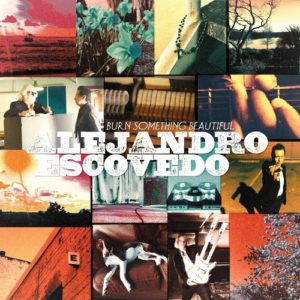 AE: I already have, actually! I played with the guitar player and the bass player and the drummer. We made a demo actually for Burn Something Beautiful and I almost made the album with them, but at the last minute it all came together that we made it in Portland with Scott (McCaughey) and Peter (Buck). That was cool.
AE: I already have, actually! I played with the guitar player and the bass player and the drummer. We made a demo actually for Burn Something Beautiful and I almost made the album with them, but at the last minute it all came together that we made it in Portland with Scott (McCaughey) and Peter (Buck). That was cool.
MD: Now that The Crossing’s been out for a while, are you thinking forward to whatever your next project is going to be?
AE: It’s funny because, before The Crossing I was supposed to make a record with Scott and Peter again and we were gonna make a record in Portland with the same band that was the Burn Something Beautiful band, but I was supposed to make the first Yep Roc record with them. But then Scott had a stroke so that put everything on the back-burner. So I went and made a record in Italy with the boys, Don Antonio, and that became the first release of my contract with Yep Roc. So now I’m gonna go back and fulfil that obligation and the plan is to make it with Peter Buck and Scott McCaughey, producing and playing on the record…but also have Mitch Easter on guitar Eric Heywood on guitar, Hector Munoz, who played drums with me for 20-some years and then Freddie Trujillo, who’s in Richmond Fontaine, on bass, and that’s going to be the band for that record.
MD: He’s also with The DeLines, isn’t he?
AE: Yeah.
MD: Man their new album is amazing. I don’t know if you’ve heard that.
AE: Oh yeah, that’s a great record.
MD: Well that sounds pretty exciting. You’re going to have to come back to New Zealand and bring that band with you.
AE: Well, I want to bring a band with me, you know, the next time I come. And this will be just me by myself, telling stories, letting people get a sense of who I am, and then hopefully I’ll come back next year my full band and we’ll be able to put on a complete programme, a complete show, so that’ll be cool.
Click here for tickets to see Alejandro Escovedo at The Tuning Fork, Friday, March 15th.